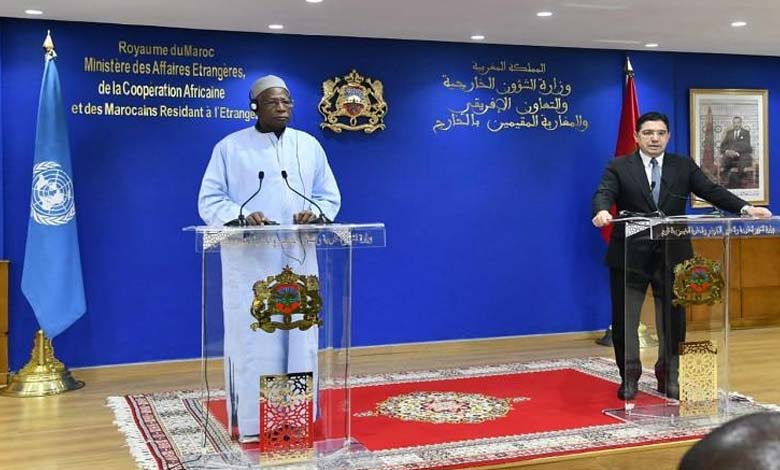Morocco urges for a solution to the Libyan crisis under the UN umbrella
The Kingdom of Morocco leverages its diplomacy as a balanced regional player to resolve the Libyan crisis and revitalize peace efforts in the region

Morocco considers its diplomacy as a balanced regional card to resolve the Libyan crisis and revitalize peace efforts in the region, convinced that the continuation of the crisis in Libya negatively impacts the stability of Africa, specifically North Africa, the Sahel, and the Sahara.
Morocco insists that consultations regarding the Libyan file should be under the UN umbrella to confront foreign interventions. Rabat has played a positive role in recent years in bridging perspectives among Libyan parties, away from narrow interests, especially through negotiations in Bouznika and dialogue in Skhirat, which have contributed to resolving many contentious issues among Libyan political leaders.
Moroccan Foreign Minister Nasser Bourita told journalists in Rabat after talks with Stephanie Williams, the acting Special Representative of the UN Secretary-General for Libya, who began an indefinite visit to the kingdom: “It is essential today to find a way out of the Libyan crisis, as this has a significantly positive impact on the security and stability of North Africa and the Sahel,” according to the Moroccan official news agency.
-
Two-headed government… The dispute over the presidency deepens the Libyan crisis and increases the fears of the people
-
A balanced and influential Moroccan role in pushing for a solution to the Libyan political crisis
The African Sahel region, south of the Sahara Desert in North Africa, includes several countries, notably Mali, Niger, Nigeria, Senegal, Burkina Faso, and Chad.
Bourita‘s stance is realistic, as foreign interventions, arms proliferation in Libya, and militia dominance will have a negative impact on the Sahel region, where many armed groups resort to smuggling weapons and terrorists to bolster jihadist ranks.
His statement also points to the negative role of many countries and powers in fueling tensions, complicating the UN’s task of unifying Libya.
-
Egypt welcomes meeting’ results of Aguila Saleh and al-Mishri to resolve Libyan Crisis
-
They strive to return to ground zero… Libyan Brotherhood obstructs elections
He emphasized that his country “has always been convinced that the UN umbrella is necessary to legitimize any path and solution to the Libyan crisis,” noting in this regard Morocco’s keenness for the United Nations to monitor the Libyan file and be aware of the diplomatic movements it undertakes within this framework.
He noted that this commitment has been embodied since the Libyan political dialogue hosted by the Moroccan city of Skhirat in December 2015, where Morocco worked with the UN, as well as in the Libyan dialogue in Bouznika, south of Rabat, in September 2020, and in all subsequent meetings.
He clarified that Stephanie Williams’ current working visit to Morocco “comes within the framework of permanent coordination and consultation between the Kingdom of Morocco and the United Nations based on the directives of King Mohammed VI that Morocco’s actions in the Libyan file always be in consultation and coordination with the United Nations, as the primary sponsor of the Libyan file.”
Morocco “has always believed that the solution to the Libyan crisis lies in the hands of the Libyans, and that resolving the issue of legitimacy in Libya can only be achieved through elections,” he said.
Morocco sees that ending the conflict in Libya, averting external ambitions and interventions, and unifying its institutions will have positive implications for the entire region, especially in terms of security.
Libyans hope for elections to end disputes and divisions that have persisted since early 2022, with two governments, one headed by Osama Al-Hamad, endorsed by the House of Representatives (East), and the other based in the capital Tripoli (West), led by Abdul Hamid Dbeibah.
According to Bourita, “The Kingdom of Morocco always works with all Libyan institutions with respect and credibility, and has positive and respectful relations with all Libyan institutions and all their parties.”
Morocco has previously hosted five rounds of dialogue between conflicting parties in Libya, culminating in January 2021 with an agreement on a mechanism for assuming sovereign positions.
It has also hosted meetings between delegations from the High Council of State and the House of Representatives in Libya on the electoral law at various times in recent years, the latest of which was in June 2023.












